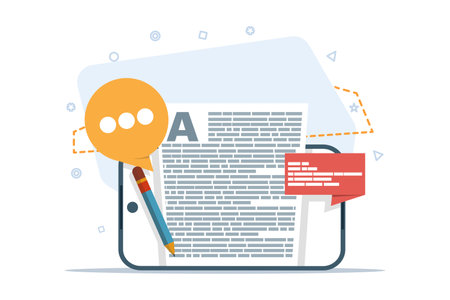Understanding the U.S. Job Market Landscape
The American job market for entry-level positions is highly competitive and fast-paced. Many recent graduates and those switching careers find themselves applying for the same jobs, making it important to understand what sets successful candidates apart. In the United States, employers not only look at your education or technical skills but also value qualities like adaptability, teamwork, communication, and a genuine interest in their company.
Key Features of the Entry-Level Job Environment
| Feature | Description |
|---|---|
| High Volume of Applicants | Many entry-level roles receive hundreds of applications, so standing out is crucial. |
| Emphasis on Soft Skills | Employers often prioritize communication, problem-solving, and teamwork over technical expertise alone. |
| Diverse Applicant Backgrounds | Candidates come from various fields; transferable skills are valued. |
| Company Culture Fit | Hiring managers want to see if you align with their mission and values. |
| Quick Screening Processes | Recruiters may spend just seconds reviewing each cover letter or resume. |
What American Employers Commonly Seek in Entry-Level Candidates
- Relevant Skills: Even for entry-level jobs, employers look for basic technical abilities and a willingness to learn new things.
- Clear Communication: Being able to explain your experiences simply and confidently is highly valued.
- Initiative: Showing that you are proactive, whether through internships, volunteer work, or extracurricular activities, can make a big difference.
- Cultural Fit: Companies appreciate candidates who have researched their organization and show enthusiasm for their mission.
- Problem-Solving Attitude: Employers want to see how you approach challenges and adapt to new situations.
Tip: Tailor Your Cover Letter to Each Job Posting
A generic cover letter rarely works in the American job market. Take time to read each job description carefully and highlight how your background matches what the employer is seeking. Use specific examples that demonstrate your skills and personality traits. This approach shows recruiters that you’re genuinely interested in their role and increases your chances of getting noticed.
2. Tailoring Your Cover Letter to Each Employer
When applying for entry-level jobs in the U.S., sending out a generic cover letter won’t help you stand out. American employers expect applicants to show genuine interest and effort by customizing each cover letter to fit the specific role, company, and industry. Here’s how you can effectively tailor your cover letter for the competitive job market:
Research the Company and Role
Before you start writing, take time to learn about the company’s culture, values, and mission. Also, carefully read the job description to understand what they’re looking for in a candidate. Use this information to match your skills and interests with their needs.
How to Find Relevant Information
| What to Research | Where to Look | How to Use It |
|---|---|---|
| Company values and culture | Company website, social media, employee reviews | Mention shared values or how you fit their culture |
| Job requirements | Job posting, LinkedIn, career pages | Highlight matching skills and experience |
| Industry trends | News articles, professional associations | Show awareness of current challenges or innovations |
Personalize Your Introduction
Avoid starting with “To whom it may concern.” Instead, address the hiring manager by name if possible. If you can’t find a name, use a greeting like “Dear Hiring Team.” This shows attention to detail and respect for the reader.
Connect Your Skills to Their Needs
The body of your cover letter should clearly explain why you’re a good fit. Use keywords from the job description and give specific examples that relate directly to the position. For example, if the job emphasizes teamwork, briefly describe a group project or club activity where you contributed successfully.
Example: Matching Skills to Job Requirements
| Job Requirement | Your Experience Example | Phrasing in Cover Letter |
|---|---|---|
| Strong communication skills | Led class presentations in college courses | “I developed strong communication skills by presenting projects to classmates and professors.” |
| Attention to detail | Proofread student newspaper articles before publication | “My attention to detail ensured accuracy as I proofread articles for our campus newspaper.” |
| Teamwork abilities | Volunteered on event planning committees | “Working on event committees taught me how to collaborate with others toward common goals.” |
Mention Why You Want This Job at This Company
A key part of American workplace culture is showing enthusiasm for both the job and the employer. Briefly explain what excites you about working there—maybe it’s their innovative products, commitment to diversity, or opportunities for growth. Be sincere and specific.
Quick Tips for Customizing Your Cover Letter:
- Edit your cover letter for each application instead of reusing the same one.
- Use examples that are relevant to each company and role.
- Avoid generic phrases; make each sentence meaningful.
By tailoring your cover letter this way, you demonstrate that you’ve done your homework—and that you’re serious about joining their team.
![]()
3. Showcasing Transferable Skills and Relevant Achievements
When you’re applying for entry-level positions in the highly competitive American job market, it’s common to feel like your experience isn’t enough. However, many employers are looking for potential, not just a long list of previous jobs. The key is to spotlight your transferable skills—abilities you’ve developed through school, internships, part-time work, volunteering, or extracurricular activities—that match the requirements of the job.
What Are Transferable Skills?
Transferable skills are versatile abilities that can be applied across different jobs and industries. Examples include communication, teamwork, problem-solving, time management, and adaptability. These are especially valuable for entry-level candidates because they show your readiness to learn and contribute from day one.
How to Identify Your Relevant Skills
Start by carefully reading the job description. Make a list of skills and qualifications that the employer wants. Next, think about your own experiences—both inside and outside the classroom—that demonstrate these skills. Don’t underestimate projects, leadership roles in student organizations, volunteer work, or part-time jobs. If you worked as a cashier, for instance, you developed customer service and cash handling skills; if you led a group project at school, you practiced leadership and collaboration.
Matching Your Experience to Job Requirements
The table below shows how you can connect common entry-level job requirements with examples from your own background:
| Job Requirement | Transferable Skill Example | How to Present It in Your Cover Letter |
|---|---|---|
| Strong Communication | Presented research findings in class or club meetings | “Delivered presentations to groups of 20+ classmates, explaining complex topics clearly” |
| Teamwork | Worked on group projects or in sports teams | “Collaborated with peers on team assignments to meet tight deadlines” |
| Customer Service | Volunteered at community events or worked part-time in retail/food service | “Assisted customers and handled inquiries with professionalism at local charity events” |
| Problem-Solving | Solved challenges during internships or academic projects | “Identified process improvements during an internship that saved time for my team” |
| Time Management | Balanced studies with extracurricular activities or part-time jobs | “Managed coursework while leading a campus club and working 15 hours per week” |
Tips for Highlighting Achievements in Your Cover Letter
- Be specific: Use numbers or details when possible (e.g., “organized a fundraiser attended by 100+ people”).
- Tie skills back to the company’s needs: Reference keywords from the job posting so employers see the direct connection between your experience and their requirements.
- Avoid generic statements: Instead of saying “I am hardworking,” describe a situation that demonstrates your work ethic.
- Show growth: Mention how you learned new skills or overcame challenges—it shows adaptability and eagerness to improve.
Sample Cover Letter Sentence Structure
You can use this simple formula:
I developed [Skill] by [Action/Experience], which will help me [Achieve Company Goal/Meet Job Requirement].
4. Using Authentic and Professional American English
When applying for entry-level positions in the U.S., your cover letter should reflect both professionalism and a natural, approachable tone. Using language that sounds authentic to American workplace culture helps you connect with recruiters and shows you understand local business communication. Here are some tips and examples to help you write in a way that feels both confident and culturally appropriate.
Tips for Writing in an American Workplace Style
- Be Direct and Clear: Americans value straightforward communication. Get to the point quickly without unnecessary filler or formalities.
- Avoid Overly Formal or Outdated Phrases: Skip phrases like “To whom it may concern” or “Herewith attached.” Instead, use modern greetings and clear statements.
- Show Enthusiasm: Express genuine interest in the company or role. Words like “excited” or “enthusiastic” work well.
- Use Active Voice: Write sentences where the subject does the action. For example, “I developed…” instead of “It was developed by me…”
- Keep It Professional but Friendly: Strike a balance between respectful and personable—avoid slang, but don’t sound stiff.
Common Phrases: What to Use and What to Avoid
| Outdated/Overly Formal | Modern/Preferred |
|---|---|
| I am writing to express my sincerest interest… | I’m excited to apply for the [Job Title] position… |
| Enclosed please find my resume. | I’ve attached my resume for your review. |
| I would be honored if you considered my application. | I look forward to the opportunity to contribute to your team. |
Quick Do’s & Don’ts
- Do: Use contractions (I’m, I’ve, can’t) if they feel natural.
- Don’t: Use old-fashioned phrases (“Hereby,” “Respectfully yours”).
- Do: Mention specific skills or experiences that match the job description.
Example of an Authentic Opening Paragraph
I’m excited to apply for the Marketing Assistant position at Bright Solutions. As a recent graduate with hands-on internship experience, I’m eager to contribute fresh ideas and energy to your innovative team.
5. Addressing Gaps and Non-Traditional Backgrounds
How to Talk About Gaps and Unconventional Experiences in Your Cover Letter
In the American job market, it’s common for entry-level candidates to have academic gaps, career breaks, or non-traditional experiences. Employers appreciate honesty and want to see how you turn these situations into strengths. Here are some strategies to help you explain your background in a positive way:
Strategies for Explaining Gaps or Unusual Backgrounds
| Situation | How to Frame It Positively | Sample Language |
|---|---|---|
| Academic Gap (e.g., took time off school) | Highlight skills gained during the gap, such as volunteering, learning new skills, or personal development. | “During my time away from school, I volunteered at a local community center, where I developed strong communication and teamwork abilities.” |
| Work Gap (e.g., employment break) | Focus on how you stayed productive or continued learning—mention freelance work, online courses, or family responsibilities that taught valuable lessons. | “While not formally employed, I completed several online courses in digital marketing, which strengthened my analytical skills and kept me current with industry trends.” |
| Non-traditional Background (e.g., switching fields, unique life experiences) | Show how your unique experience brings a fresh perspective or transferable skills relevant to the job. | “My experience managing a family business taught me adaptability and problem-solving under pressure—skills that will help me thrive in this role.” |
Tips for Addressing Gaps or Unconventional Paths in Your Cover Letter
- Be brief but honest: Clearly state the gap or experience without over-explaining.
- Connect to the job: Relate what you learned to the position you’re applying for.
- Stay positive: Focus on growth and readiness for new challenges.
- Avoid negative language: Do not apologize for your path; instead, highlight your resilience and adaptability.
Example Paragraph for a Cover Letter
I took a year off after graduation to care for a family member. During this time, I developed strong organizational skills while coordinating medical appointments and managing household needs. These experiences have made me highly adaptable and ready to contribute positively as part of your team.


